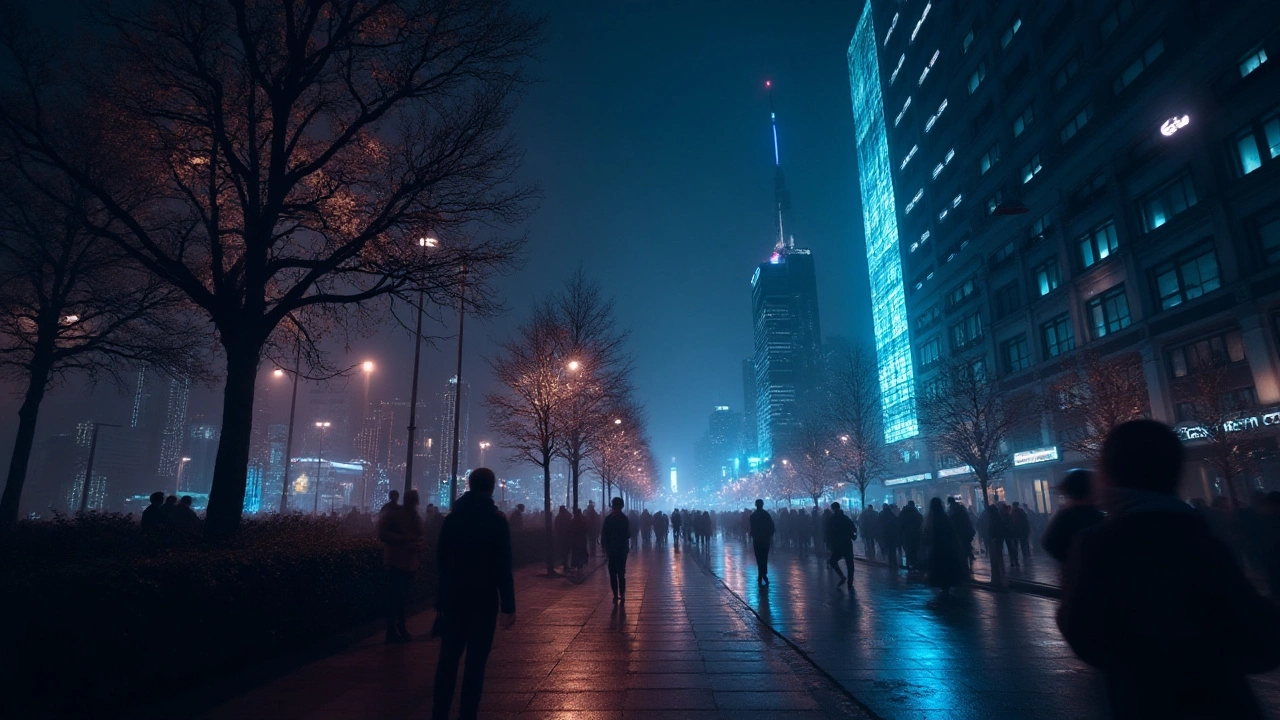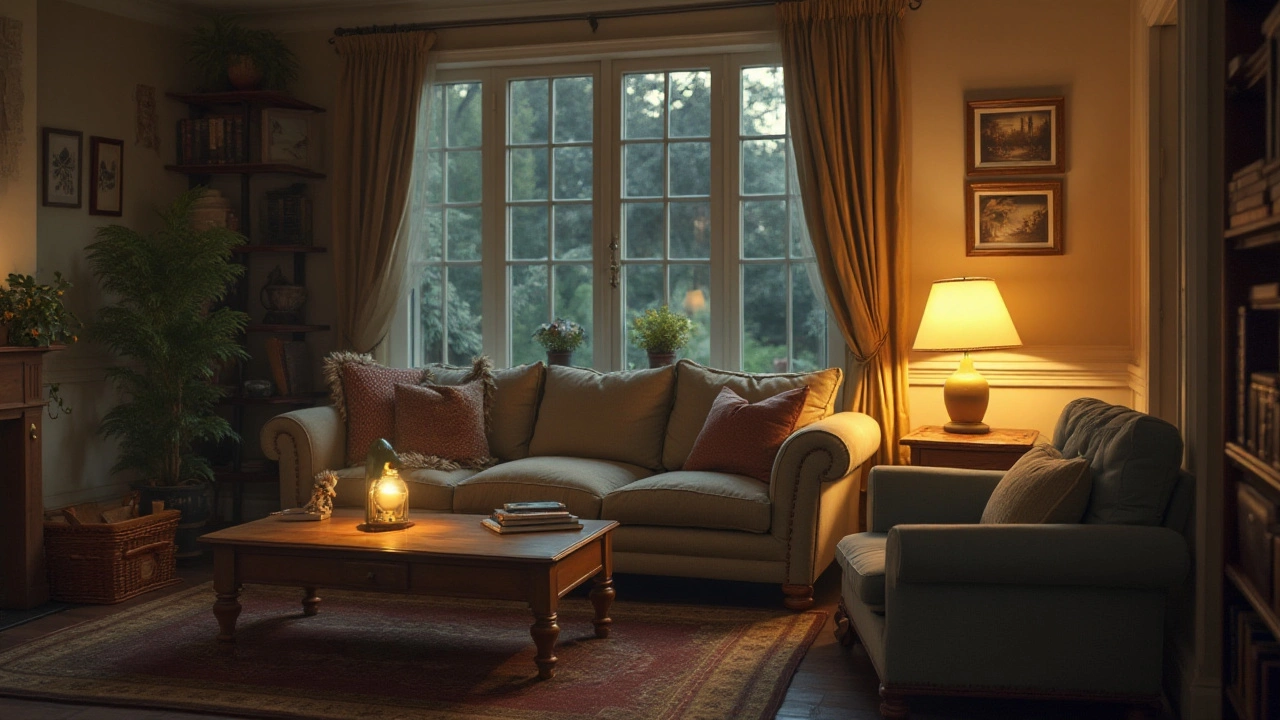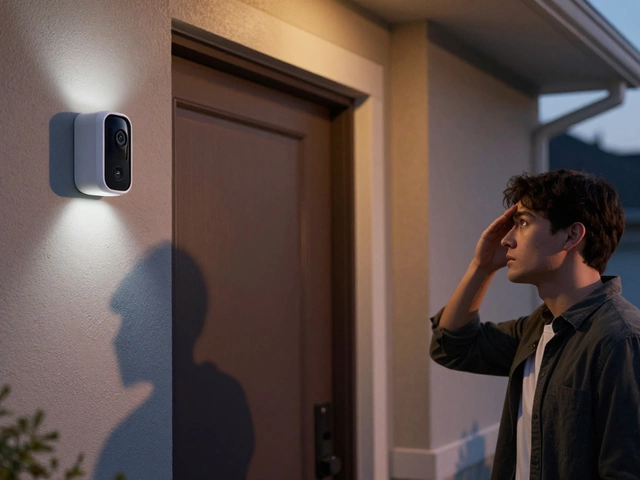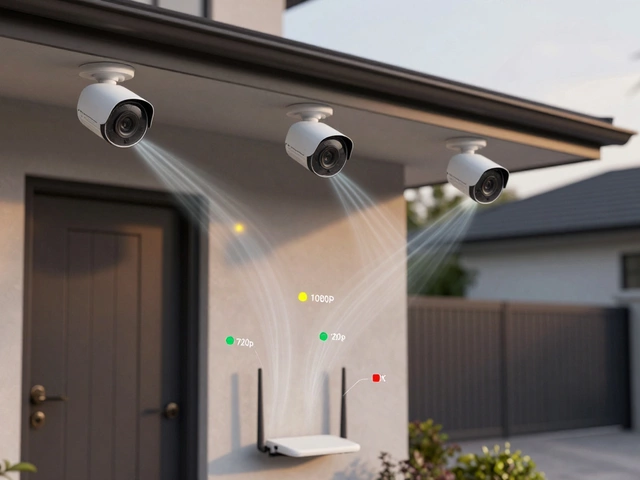Our smartphones have become indispensable tools in our lives, capturing moments, bridging communication, and even aiding productivity. But amidst the convenience, there's a shadowy concern that's been murmured about with increasing frequency: can our phone cameras record us without our knowledge?
The power of smartphone cameras has evolved dramatically, with high-definition quality, improved sensors, and even the capabilities for night vision. It's no wonder then that questions about privacy arise. Are these cameras operating incognito, capturing more than we intend?
Let's embark on a journey to unravel what our trusty devices are really capable of, understand the implications of app permissions, and learn practical tips to ensure our digital lives remain private.
- Understanding Smartphone Camera Technology
- The Reality of Night Vision and Recording
- Privacy Concerns and Application Permissions
- Protecting Your Digital Privacy
Understanding Smartphone Camera Technology
When we point our smartphones to capture an image, a series of complex processes unfold within that slim, seemingly simple device. This innovation, combining intricate optics and sophisticated software, makes photography accessible to everyone. The core component of any camera – the sensor – converts light into electronic signals, forming the basis of digital images. Today's smartphone sensors rival those of dedicated cameras in size and efficiency, but they are uniquely optimized for compact spaces and cost-effectiveness.
With advances in camera sensors, what once required substantial equipment is now possible with our phones. Many smartphones, especially premium ones, include multi-lens setups, each lens providing distinct capabilities such as wide angles, telephoto, or night vision modes. Night vision, for instance, leverages increased sensitivity to light and advanced algorithms to bring low-light scenes into clarity. It's more than just increasing brightness; it involves reducing noise and preserving detail, often assisted by AI-based enhancements.
The complexities do not end with hardware. Software enhancements like image stabilization, real-time HDR processing, and even photo and video editing tools are crucial. These tools play significant roles in day-to-day photography, often unnoticed by users. Smartphones employ machine learning to perfect your photos automatically, adjusting elements that we would otherwise struggle with manually. But with great capability comes the need for vigilance – this evolution also raises questions about the potential misuse of these technologies.
"The growth of computational photography is pushing the limits of smartphone cameras beyond what traditional cameras could achieve," says a leading expert in smartphone technology.
Stepping deeper into the realm of software, applications exploit this technology to augment our photography experience. However, it's a double-edged sword. While it unlocks impressive functionalities, it also opens doors for private invasion through unsecured applications. Permissions granted to apps can inadvertently activate phone camera security risks. Developers often embedded these functionalities to improve convenience, not privacy invasion. But not all apps draw this ethical line.
As tech aficionados, it's imperative to understand these technologies to better manage the power they bring. While many users embrace this self-awareness, the ever-growing pace of innovation consistently tests this understanding. The blend of smartphone privacy and camera advancements shows that we're only scratching the surface of what's possible, as every update brings nuances that redefine our interaction with visual technology.
The Reality of Night Vision and Recording
In recent years, the concept of night vision has traversed from military and surveillance arenas to the palms of our hands through smartphones. While it might sound futuristic, the science behind it is quite intriguing. Most modern smartphones boast cameras equipped with low-light enhancements, allowing you to snap crisp images even in dim environments. This ability is largely due to advanced sensors that can capture more light, alongside algorithms that reduce noise and intensify image clarity. The night vision camera feature, although not standard on all devices, can often record in near-complete darkness by leveraging infrared technology.
This begs the question: does having this capability mean that your smartphone's camera can record you secretly, even at night? To tackle this, it's essential to understand how night vision and recording work technically. When you select a night mode in your camera settings, the device typically activates multiple actions. It might slow down the shutter speed to gather more light or merge multiple shots to form a coherent picture. Recording involves activating these sensors to capture motion over a specified period. However, despite these capabilities, the actual act of recording secretly isn't as simple as tech enthusiasts might fear.
Citing cybersecurity scholar Jonathan Mason who once said, "The fear around smartphone camera security is less about the technology itself and more about how it's controlled. Unauthorized access arises from exploiting permissions than the hardware's limitations."
The essential takeaway here is access. Your phone camera's security is intrinsically tied to the permissions granted to apps. Most phones don't allow background capture of video or photos without explicit user consent, usually required at the app's installation or setup. However, there are deceptive apps that exploit loopholes or phishing tactics. Reports have occasionally surfaced of malware that can hijack your camera, but such instances typically involve apps from unverified sources outside official app stores.
To truly understand the capacity of these devices, let’s delve into some typical parameters involved. When recording in low-light, devices might operate on specific exposure settings and capture modes. The accessibility of these functions to external apps without user permission is limited by the phone’s operating system. While no technology is entirely impervious to potential breaches, reputable devices regularly update security protocols to prevent such unauthorized actions. Users are advised to maintain updated phone software and stick strictly to downloading from trusted platforms to safeguard their digital privacy.

Privacy Concerns and Application Permissions
The allure of modern technology often distracts us from the small print and fine details tucked away in our digital agreements. Every app downloaded on your smartphone comes with an array of permissions that, once accepted, grant access to various features of your device. Of particular interest is the camera, a tiny powerhouse nestled within your phone's casing, capable of capturing life's spontaneity at a tap. However, this marvel of tech convenience has a flipside that many may not ponder deeply enough - the potential for unwarranted and discrete recording.
Imagine this: As you grant permission for a simple photo editing app, you might be allowing that app not only to access your stored images but to activate your camera and microphone as well. This isn't just an exaggerated scaremongering hypothesis. It does happen, primarily because users often inadvertently tap 'accept all' without realizing they’re giving carte blanche to the app developers. The problem intensifies with apps that don't clarify what they’re collecting, or worse, those that do exploit the granted privileges behind the scenes. While Apple and Google rigorously vet their respective app stores, the influx of new apps often allows subtle breaches in oversight.
Efforts have been made to tackle these issues. For instance, both Android and iOS have introduced notification features that alert users when the camera is in use. Yet, this doesn’t wholly safeguard your smartphone privacy. Developers can craft applications to turn on these rights only when truly necessary, thus minimizing notifications and going unnoticed. An infamous quote from tech analyst Jessica Tan states, "Privacy isn't dead, but it requires more vigilance than ever to keep it alive." If we consider this statement, it implies users need to adopt a proactive approach to protect their data integrity and phone camera security.
The complexity surrounding app permissions also leans heavily on the ever-tiring user to frequently check and adjust settings. Diving into settings regularly to audit which apps have camera access can seem daunting but offers significant peace of mind. Think of it as regular maintenance, much like servicing a vehicle. On both Android and iOS devices, navigating to the privacy or permission settings screen will list out all apps and the areas they can access. From here, one can swiftly revoke or grant permissions, ensuring that only trusted apps interface with your camera.
Practical Steps to Enhance Your Smartphone Privacy
To bolster your digital surveillance defenses, consider enacting a few practical measures. First, scrutinize and question each permission request. Ask yourself why a particular app needs access to your camera. If it seems unjustified, deny it or seek an alternative application that demands less access. Another vital step is to routinely update your apps and operating systems. Developers frequently release patches that fix potential privacy loopholes, so staying updated helps you remain protected against new vulnerabilities. A lesser-known but impactful tip is covering your camera when not in use. While not foolproof, it prevents unauthorized access visually.
In this era of rapid technological advancement, the responsibility to protect our digital presence increasingly falls on us, the users. Understanding smartphone privacy intricacies is not merely technical knowledge, but a necessary skill to navigate our ever-connected world safely. Equip yourself with awareness and periodically check which aspects of technology govern your smartphone. With vigilance and informed decisions, you can ensure the little lens on your screen guardian remains exactly that - a tool for your interaction, not a window into your private world.
Protecting Your Digital Privacy
In today's digital era, safeguarding our smartphone privacy is as crucial as locking the doors to our homes. Though technology offers unshackled convenience, it is a double-edged sword that can easily pierce our private lives. The fear of unauthorized access to our phone cameras is not unwarranted; thus, being vigilant about privacy settings on our devices is paramount. One of the simplest steps you can take is to regularly check app permissions. Each time you download an application, it may request access to your camera. By delving into the settings, you can toggle off unnecessary permissions, ensuring no app uses your camera without express consent.
Another key aspect is keeping your phone's software updated. These updates often include patches for security vulnerabilities that hackers may exploit to gain access to your smartphone's camera. Think of it as bolstering your digital defense wall. Moreover, utilizing security software that offers webcam protection can add an extra layer of defense, alerting you to unauthorized camera usage. So, when those notifications appear for system updates, don't dismiss them in haste.
When it comes to phone camera security, awareness is your best friend. Suspicion might be your constant companion in the digital world, but well-placed skepticism can keep you safe. Always scrutinize the trustworthiness of apps, especially those requesting permissions beyond their functional scope. A flashlight app using your camera? It's vital to question such discrepancies. Regularly evaluating your installed apps can keep your privacy intact and reduce the risk of hidden surveillance risks.
"Privacy is not an option, and it shouldn’t be the price we accept for just getting on the Internet," said Gary Kovacs, a known figure in the security landscape.
Intuitive measures like covering your camera when not in use are practical and straightforward tactics. While it sounds simplistic, a small tape or a sliding cover over your camera provides absolute assurance against prying eyes. This may appear overzealous to some, but it's a tested strategy that's been endorsed by experts. After all, why not impose a physical barrier if there's even a slight chance of misuse?
Finally, staying informed is important. Digital literacy and keeping abreast of the latest in digital surveillance, and security practices, can be your greatest assets in today’s hyper-connected world. Our privacy is precious, and with these steps, it's possible to protect it effectively. Utilize online resources and communities focused on privacy advocacy; they are priceless in aiding your understanding and awareness of new threats and protective tactics. Armed with knowledge, you can navigate the digital world with confidence and peace of mind.



